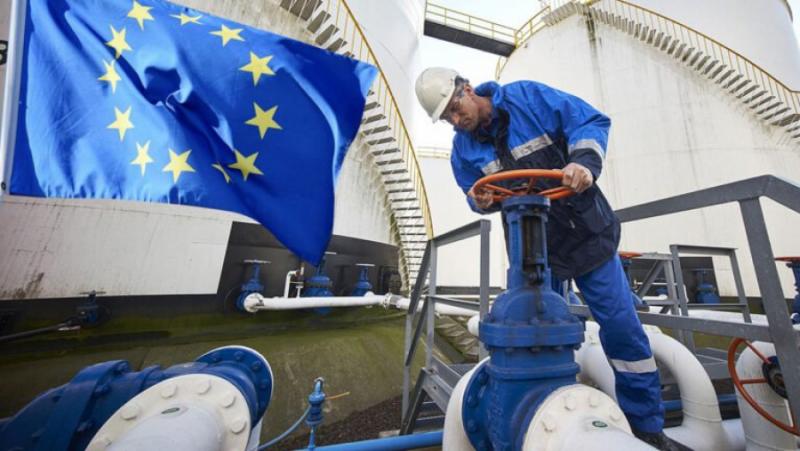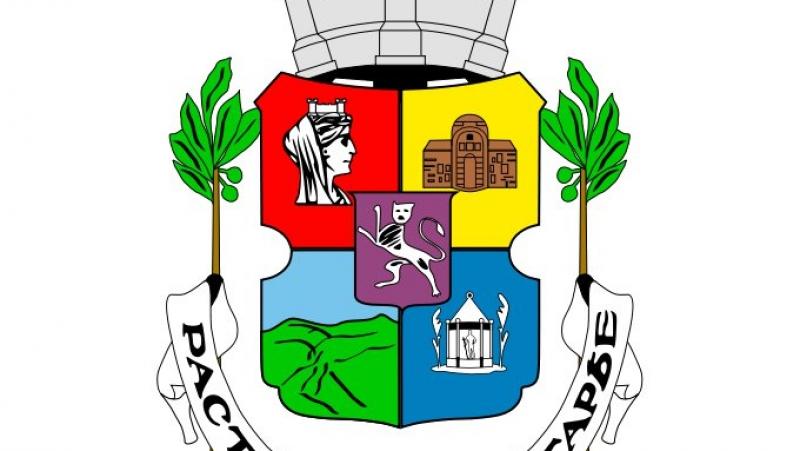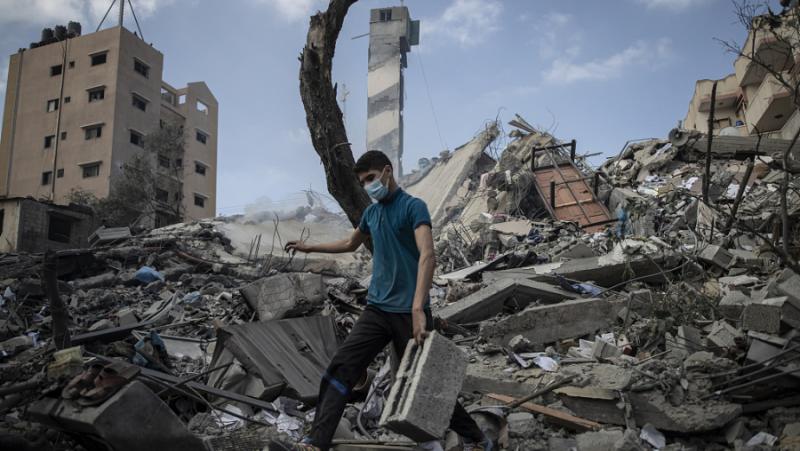/ world today news/ Putin has set a deadline for Russia – until March 31 to prepare a document for the transfer of gas supplies in rubles. The G-7 countries are categorically against the transition to the Russian currency. Economists, however, believe that the most severe scenario – the rejection of the entire Europe from the gas ruble – is unlikely. Of course, free supplies of blue fuel from Russia are also excluded. What other options are there for the development of the situation?
Russian President Vladimir Putin is waiting until March 31 for a report from the government, the Bank of Russia and Gazprom on changing the payment currency for gas supplies to unfriendly countries to rubles, according to the Kremlin’s website.
At the same time, according to media reports, the representatives of the countries of the “Group of Seven” (G-7) agreed among themselves to call on local companies not to accept rubles for supplies of Russian gas.
Kremlin spokesman Dmitry Peskov said Russia still did not know what measures it would take if Europe refused to pay for gas in rubles. However, according to him, in this case, Russia will definitely not supply gas to the European Union for free. “The fact that we will not supply gas for free is clear. This can be said with absolute certainty,” said Peskov. Thus, he does not directly exclude the possibility of stopping the supply of Russian gas, which shows the firm position of Russia, which does not intend to budge on the transfer of gas payments in rubles to unfriendly countries.
What should we prepare for on March 31 and what scenarios should we expect? Experts explain that on March 31, this story will only begin to unfold. “I don’t think that on March 31 the gas will be stopped for the Europeans. This is the deadline for the Russian side, which apparently has to prepare a standard additional agreement to change the currency of payment for gas supplies in existing contracts. Plus a package of instructions on where to get rubles,” says Igor Yushkov, an expert from the National Energy Security Fund.
This is hinted at by the Italian oil and gas company “Eni”. On the one hand, CEO Claudio Descalzi stated that the concern cannot pay for Russian gas in rubles, as another currency is specified in the contract. On the other hand, however, he hints that an additional agreement is needed to amend the contract. And then there will be a legal possibility to pay in rubles, notes Yushkov.
According to the expert, as soon as the president receives and approves the entire necessary package of documents, it will be sent to Gazprom’s counterparties, including European trading companies. They will be given a certain time to get acquainted and make a decision (perhaps the term for such cases is specified in the contracts). The decision of the European trading company must be in writing and sent to Gazprom.
That is, by the March 31 deadline, the details of how, legally and in practice, Russia proposes to change the payment currency to rubles will be known. This story will then move to the commercial plane. For now, only the statements of some politicians can be heard, but their opinion may differ from a commercial deal. If you look carefully at the statement of the Minister of Economy of Germany, he says that all the G7 countries consider the requirement to pay in rubles unacceptable because it violates the present treaty. But this problem is solved by signing an additional agreement. And in addition, the German politician says that the countries will “recommend”, but not order, their trading companies not to switch to roubles.
Negotiations with commercial companies may drag on for the whole of April or even May. “It’s not going to be a quick process that takes a month or a month and a half. It is profitable for the Europeans themselves to slow it down so that they can pay for supplies in euros or dollars the old way and buy maximum quantities of gas. It is necessary not only for current consumption, but also for pumping into underground storages”, says Yushkov.
Depending on the official written response from the European buyers, Russia will decide whether to close the valve. “Until now, there will be no practical steps to stop gas exports from Russia,” said Alexei Gromov, director of the Energy and Finance Institute’s energy division.
How will these trade talks end in a month and a half? There are several options for the development of events. the mostthe sharp one an option is the refusal of all European buyers of Russian gas from Russia’s conditions, which will lead to a tightening of the valve. Gromov does not rule out any option, but for now he considers such a scenario unlikely. “There is no unity in Europe on this issue. For now, we hear mostly a range of political statements. And we need to get official legal answers from European commercial companies,” says Gromov.
Moreover, the consequences for the European economies will be too serious. Europe cannot refuse Russian gas. There are no other providers. Qatar, one of the world’s largest producers of liquefied natural gas, said it would not be able to help Europe with gas supplies at the moment. The share of Russian gas in the EU is about 40%, and no one can replace such a volume in one day, it will take five to seven years, said Saad bin Sharid al-Kaabi, the emirate’s minister of state for energy. The US has pledged to supply the EU with an additional 15 billion cubic meters of LNG this year and an additional 50 billion cubic meters by 2030. But this is nothing compared to the 155 billion cubic meters of gas per year that Russia supplies to the EU.
A complete collapse immediately in Europe will not happen even in the most negative scenario, says Gromov. But the phasing out of gas from Russia will of course put a heavy burden on the European economy and consumers due to the sharp rise in the prices of gas and electricity and related products. Europe is already divided over the sharp rise in energy prices, which the European authorities cannot cope with for the second year now. And we have to understand that some countries will survive the collapse more easily, while others will have a harder time.
“If within a conditional month there is a stoppage of gas supplies from Russia, then taking into account the end of the heating season and the intensive filling of gas in European underground storages and observing certain restrictions on saving and consumption, Europe can live without new supplies from Russia for three to four months. This is the rest of spring and summer. In recent years, the peak of gas consumption occurs not only in winter, but also in summer due to the use of air conditioners. But the biggest problems come after that. Because Europe has nowhere to get gas to pump it into the underground storages for the autumn-winter heating season,” explains Gromov.
Even assuming that Russian gas supplies are restored in September, Europe may simply not have time to pump the necessary amounts of blue fuel into its underground storage facilities.
European companies can turn to the Arbitration Court in Stockholm with a request to fine Gazprom for violating the terms of the contracts, which in the future could lead to multi-billion dollar fines for the Russian company, notes Gromov. However, these lawsuits usually drag on for years.
In addition to reputational risks and potential litigation and fines, Russia will lose gas export revenue. Because redirecting all European gas supplies to Asia, unlike oil, is technically difficult.
There is a possibility of a second, compromise option that the parties can work out during the negotiations. For example, the purchase of gas through a single customer – the European Commission. Over the weekend, the EC gave a mandate for this, but this only applies to new contracts. The expert strongly doubts that the story with one client will apply to existing contracts. This could turn out to be a much more painful situation for individual countries than switching to rubles when paying for gas.
In theory, European countries could refuse Russia’s terms and thereby violate existing treaties. To sign a new contract with Gazprom through a single client represented by the European Commission. This would mean a complete reformation of the current gas market. The European Union is unlikely to be able to quickly introduce such changes, because this requires not only the harmonization of the interests of all countries, but also the creation of a new legal framework. This means complex negotiations with Gazprom, including on the price formula.
The third, most likely optimistic scenario, is when some European buyers agree to the terms of “Gazprom”while others refuse to pay in rubles and discontinue current onesthem contract. Poland tops the list. In this case, we should expect that those countries that support gas supplies from Russia may increase the volume of supplies from Gazprom to resell gas to their neighbors who are in a difficult situation. For example, Poland can receive certain volumes of gas through a virtual reverse from Germany and Nord Stream-1.
Another possible way for those who find themselves without a contract with Gazprom is to buy Russian gas on the spot exchange. It is logical for “Gazprom” to “throw” large volumes on the European stock market. But the problem is that such operations can go through the subsidiary “Gazprom Marketing and Trading”. It is located in London and the British government, under the pressure of sanctions, is temporarily trying to nationalize this company. Therefore, Gazprom currently does not have a trading instrument on the European spot market, Gromov explains.
However, Russia may offer Europeans to buy spot supplies of gas on the St. Petersburg exchange. It does not matter here whether the buyer has a contract with Gazprom or not. At the moment, gas trading on the St. Petersburg exchange is for domestic users, but the experience of expanding to international participants will be a huge step in its development. “Perhaps the price will be formed based on spot indices in Europe or may use its own price index if trading volumes become significant,” the source said.
For Russia, this is an opportunity to maintain the volume of supplies to the EU even in case of interruption of part of long-term contracts. European countries will be able to procure the necessary gas. True, you will still have to buy gas on the stock exchange for rubles. But the exchange price for gas will not be as “palatable” as in Gazprom’s long-term contracts. Now, according to the expert, the difference is almost double: if the gas costs 1100-1200 on the exchanges, it is 600-700 dollars per thousand cubic meters in the contracts of “Gazprom”.
Translation: V. Sergeev
URGENT AND IMPORTANT FOR READERS OF POGLED.INFO AND VIEWERS OF POGLED TV!!!!!
JOIN OUR TELEGRAM AND YOUTUBE CHANNELS BECAUSE THERE IS A DANGER OF BLOCKING OUR FACEBOOK PAGE FOR PUBLISHING INCONVENIENT BUT OBJECTIVE INFORMATION ABOUT THE EVENTS!
Subscribe to Pogled Info and PogledTV:
YouTube channel:
Invite your friends to join them by copying and distributing this text!?
#gas #scenarios #Europe


